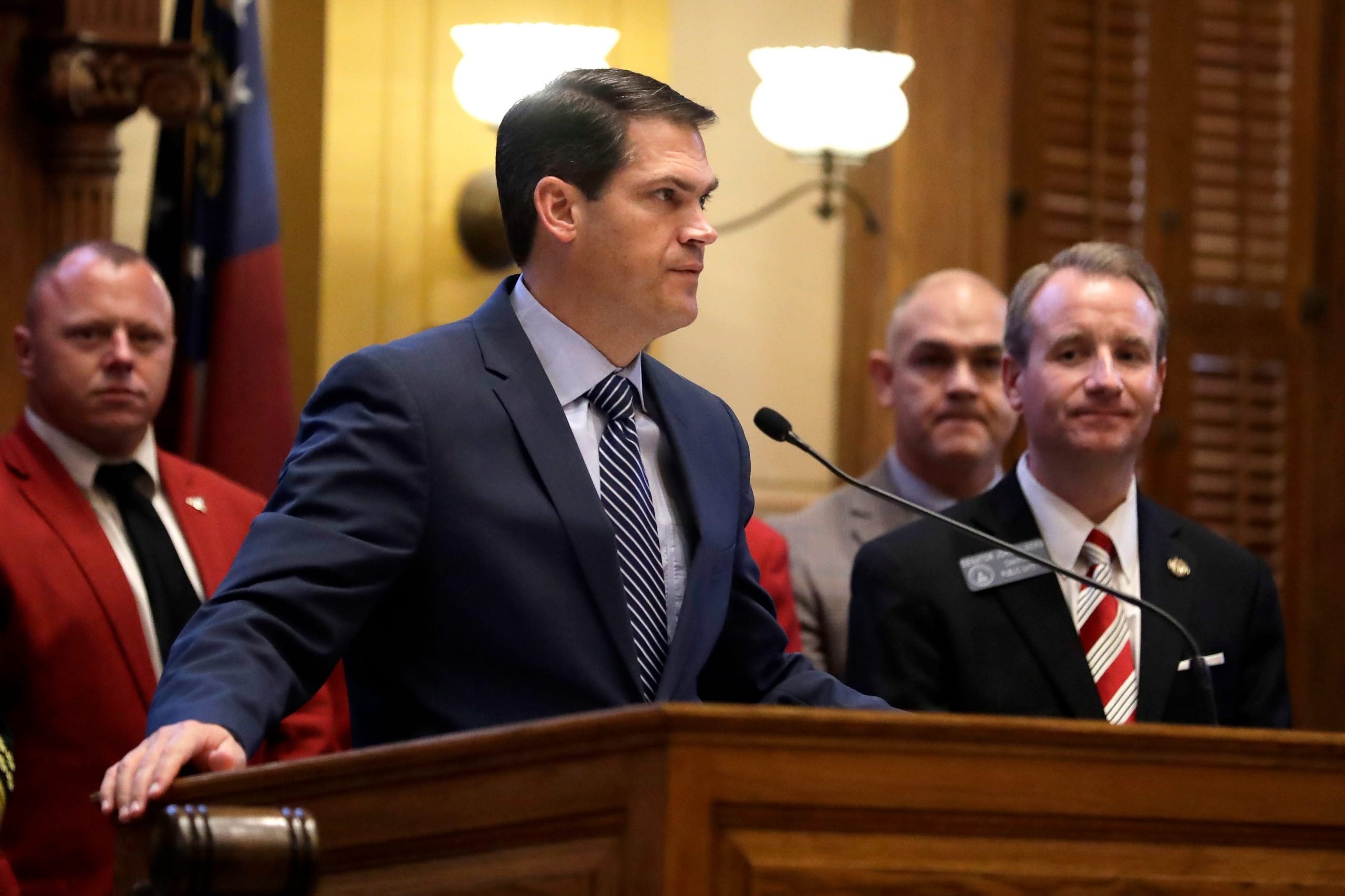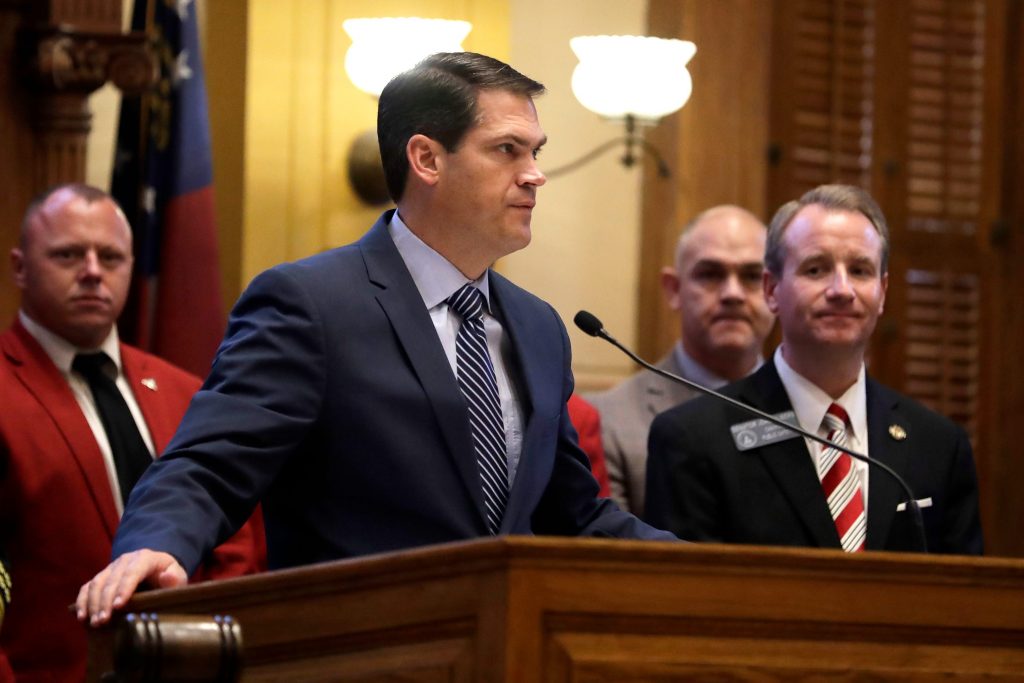
AP Photo/John Bazemore
- In a new book, Geoff Duncan said that GOP leaders pushing restrictive voting laws are "scared."
- "Many held to the theory that if more people vote, Republicans will lose," he wrote.
- The controversial SB 202 was signed into law in Georgia after generating enormous pushback from Democrats.
- See more stories on Insider's business page.
Republican Lt. Gov. Geoff Duncan of Georgia, who has vocally defended the integrity of the 2020 presidential election, said that GOP leaders who have sought to make voting more difficult are "scared."
Duncan, who in 2018 was elected on a conservative slate alongside Gov. Brian Kemp and Secretary of State Brad Raffensperger, has since come out against former President Donald Trump's attacks on the election results, stressing that the relentless onslaught has only served to undermine trust in the voting process.
In his newly-released book, "GOP 2.0," the lieutenant governor laid out a case for a more independent and inclusive party, while also acknowledging the consequences of Republican mistrust in voting systems, especially as the 2021 legislative session began in the Peach State.
"Many held to the theory that if more people vote, Republicans will lose," he wrote. "Is that true? No. But the former president and other leaders convinced many in our party that is true."
He added: "Here's what's really true: If our party wants a future where it can win majorities and pass conservative legislation, it needs ideas and policies that can capture the hearts and minds of a majority, no matter how many people vote."
Earlier this year, the GOP-controlled legislature passed a roughly 100-page long bill known as SB 202, or the Election Integrity Act of 2021, which restricts ballot drop boxes to early voting sites and limits their usage to voting hours, and narrows the window for requesting an absentee ballot, among other measures.
While Duncan was not a fan of earlier iterations of SB 202, he told Georgia Trend magazine that "a number of bipartisan ideas [were] incorporated into the final version" and contended that the legislative process worked in creating a "better" bill.
The bill, which Democrats have widely criticized since its introduction in the legislation, led to Major League Baseball moving their 2021 All-Star Game from the Atlanta region to Denver.
In June, the US Department of Justice filed a lawsuit against the state, arguing that the statewide law is discriminatory against Black Georgians.
Duncan expressed that backers of restrictive voting measures had a "clear motive."
"Because they got scared, GOP leaders became too focused on making voting more difficult," he wrote. "One of the former president's prominent supporters - a longtime Georgia congressman - attacked our Republican secretary of state, questioning why he was 'working so hard to add drop boxes and take other steps to make it harder for Republicans to win.'"
The Republican in question was former US House Speaker Newt Gingrich, who represented a Cobb County-anchored suburban congressional district from 1979 to 1999.
Duncan wrote that Republican attempts to tighten voting laws across the country have deprived the party of any real standing on the issue.
"As states began their legislative sessions, more than 250 election-related bills were filed across the country," he wrote. "Many were filed by Republican representatives as reactions to the GOP headliner losing the 2020 election, so right there, our party lost all credibility on election reform."
He added: "We had a clear motive and selfish aims. Nobody thought GOP efforts were anything more than attempts to ensure more Republicans won next time."
Contrary to many conservatives who backed Trump's election claims, Duncan said that Americans "should be proud of our states and country for conducting a fair election" during the COVID-19 pandemic.
The lieutenant governor in May announced that he would not run for reelection to a second term in 2022 and would instead focus on the GOP 2.0 independent movement to expand the Republican coalition.
